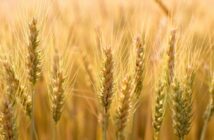Oat industry experts are coming together for the two days of Cereals ’23 to share their knowledge with visitors and highlight the expanding range of opportunities for the crop.
The Just Oats stand (410), a one-stop shop for everyone interested in the UK’s third largest home-grown cereal crop, will provide the backdrop for disseminating the very latest information on oats.
With porridge being served by Pepsico (Quaker Oats), informal breakfast clubs will be held on both days of the event at 9.00am and 10.00am, giving visitors the opportunity to ask experts their oat-related questions on varieties, agronomy and market developments.
Everyone joining the team for porridge will have the chance to win a Just Oats hamper.
On this year’s stand, guidance on growing and marketing the crop will come from representatives across milling, animal nutrition, agronomy and plant breeding disciplines, giving an insight into the oat supply chain and the collaborative efforts to support and develop the crop.
A range of winter oat varieties, husked and naked, will be on the stand, with millers highlighting the characteristics that they look for in both new and established varieties and breeders discussing future lines for emerging markets.
Oat sustainability
Food manufacturers will add a further dimension, showing how the sustainability of oats is helping with climate targets and demonstrating why different varieties suit their purposes.
As Tom Yewbrey of Just Oats organiser Senova explains, on-going product development means that the oats market is vibrant and dynamic, with the versatility of the crop leading to a range of end uses.
“As well as traditional breakfast oat products, there have been innovations for the convenience and on-the-go consumer markets, as well as more uses for oats in animal feeds, in cosmetics and other emerging well-being markets.”
The health benefits of eating oats are well-recognised by consumers, following the confirmation that beta glucan has a role in reducing heart disease, he adds.
“More recently, the rising cost of living and the continued shift to plant-based diets has also helped their cause.”
Elsewhere, the animal feed industry’s requirement for energy dense rations is being met by specialist oat varieties, with both ruminant and monogastric rations containing oats, he notes, while the small added-value market for beauty and skincare products is based on the soothing and protecting properties of oats.
At the farm level, oats have found a place as a lower input break crop, providing a much-needed alternative to oilseed rape, continues Mr Yewbrey.
“Spring oats have risen in popularity to help with black-grass control, but not at the expense of winter oats, which have shown to be far less susceptible to drought in the last few years.”
Innovation continues at pace, he reveals. “Oats meet gluten-free and high protein diet requirements, as well as the dairy substitute category. There is plenty of oat research taking place and more information will be available at Cereals.”
A new oat milling plant in Northamptonshire, which is due to come on stream later this year, will add to the supply of oat ingredients for the food and drink industry’s various uses.
Of particular interest to visitors at this year’s Cereals Event will be the newly recommended winter oat variety Cromwell, a Mascani cross, which combines high yields with milling quality.
Although it is not on display at Cereals, the candidate spring oat variety, Zenith, is expected to attract attention this year, as it combines very high yields with a high kernel content, low screenings and good specific weight.




